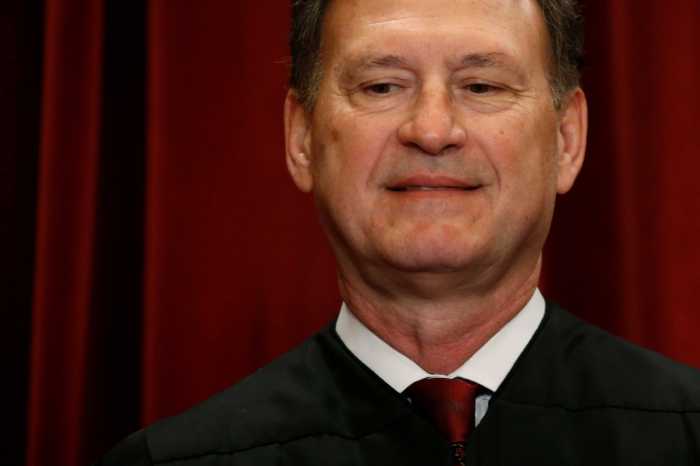A federal judge in Pennsylvania refused to dismiss a lawsuit by three parents who are challenging their children’s first grade public school teacher’s classroom presentation of “transgender topics.”
Senior US District Judge Joy Flowers Conti ruled on October 27 in Tatel v. Mt. Lebanon School District that the facts alleged by the parents were sufficient to claim that the parents’ constitutional rights were violated by the teacher’s actions.
They are seeking a permanent injunction against the presentation of this topic, or alternatively to receive advance notice and a right for them to “opt out” their children from exposure to these issues before they are presented. They are also seeking compensatory and punitive damages for the violation of their constitutional rights during the 2021-22 school year.
Megan Williams, a first-grade teacher at Jefferson Elementary School in the Mt. Lebanon District, has a transgender daughter who is in the first grade at Jefferson. She has stated to parents, when confronted about the issue, that she has an “agenda” to teach about transgender issues which she believes she has the right to pursue despite parental objections. Perhaps surprisingly, she has been backed up by the school administration and elected school board, who are all defendants in the case that the parents filed in the US District Court in Pittsburgh.
According to the complaint, Ms. Williams showed videos and read the children books about transgender topics and told the first-grade students in her class (ages six and seven) to “keep her discussions with them about transgender topics secret from their parents.” Kids will talk about what happened at school and word got out.
The complaint, which is based in part on what the kids told their parents, says that Williams “instructed” the children “that their parents might be wrong about their children’s gender,” told one student that the teacher “would never lie (implying that the parents may lie about their child’s identity) and the child could dress like a different gender and be like the teacher’s transgender child.” The complaint says that one girl asked her mother whether she was sure about her gender, and that one boy was singled out by Williams as possibly transgender and told that he could dress and arrange his hair like his mother.
According to the complaint, protests by the parents to the school’s principal, the district’s elementary education supervisor, the district superintendent, and the elected school board appeared to lead to the adoption by the district of a “de facto policy” that Williams’ conduct could “continue in the future without notice to the parents or the opportunity to opt out,” even though the principal had assured parents early in the fall term, when the issue first arose, that “transgender issues” were not part of the first grade curriculum and would not be taught to their children. The principal had approved showing the videos, considering them to be “appropriate,” and at Williams’ urging, two other teachers showed the videos to their classes as well. The Superintendent and School Board backed up their administrators and teacher after the fact.
At Williams’ insistence, says the complaint, the district modified its rule against teachers bringing their children to class on “National Bring Your Child to Work Day” so that she could bring her transgender child to her first-grade class.
The parents base their constitutional claim on the 14th Amendment (Due Process, Equal Protection, and privacy) and the First Amendment (free exercise of religion and freedom of speech). They claim a constitutional right as parents to determine what their children are exposed to at school, and to interpose their own religious or moral objections to teachings of which they disapprove.
The parents point to an official policy of the school district that whenever sensitive or controversial subjects are to be presented in class, parents are to be notified in advance and have a right to “opt out” their children. Among the issues identified by this policy are the Holocaust, slavery, the 9/11 terrorist attacks, reproductive education, sex education, Black Lives Matter, and Planned Parenthood. The parents claim that transgender issues logically come within this policy.
In deciding the defendants’ motion to dismiss the case, Judge Conti is required to treat the factual allegations in the complaint as true and to determine whether those allegations, if proved, would support the constitutional claims that the parents are making.
The judge concluded, based on precedents from the US Court of Appeals for the Third Circuit, which would have jurisdiction over an appeal from a Pennsylvania US District Court decision, that the parents’ claims should not be dismissed.
There is a split among the federal circuit appeals courts, which has not been resolved by the Supreme Court, over how to deal with such parental claims. The law in this area dates back to the 1920s, when the Supreme Court decided two important substantive due process cases, Meyer v. Nebraska (1923) and Pierce v. Society of Sisters (1925). In Meyer, the court held that the state could not ban teaching of the German language to children whose parents wanted them to receive such instruction. In Pierce, the court held that the state could not impose compulsory attendance of all children at public schools, a law that was challenged by a Catholic society that operated a parochial school. In both cases, the Court stated that part of the liberty guaranteed by the 14th Amendment included a parent’s right to decide how their children will be educated.
“The fundamental theory of liberty upon which all governments in this Union repose excludes any general power of the state to standardize its children by forcing them to accept instruction from public teachers only,” wrote the Court in Pierce. “The child is not the mere creature of the state; those who nurture him and direct his destiny have the right, coupled with the high duty, to recognize and prepare him for additional obligations.”
More recently, the Supreme Court ruled in Wisconsin v. Yoder (1972), that Amish families had a constitutional right based on free exercise of religion to withdraw their children from school at age 16, in violation of Wisconsin’s attendance statute.
Lower federal courts have differed more recently, however, about the degree to which parents can dictate public school curriculum and demand that their children be shielded from particular issues or information when attending public schools.
The Third Circuit has recognized strong parental rights, holding in C.N. v. Ridgewood Board of Education (2005) that “parents, not schools, have the primary responsibility to inculcate moral standards, religious beliefs and elements of good citizenship,” and recognizing that “introducing a child to sensitive topics before a parent might have done so herself can complicate and even undermine parental authority.” In an earlier case, Gruenke v. Seip (2000), this court stated that when parental rights conflict with a public school’s policies, “the primacy of the parents’ authority must be recognized and should yield only where the school’s action is tied to a compelling interest.”
By contrast, the West Coast-based Ninth Circuit Court of Appeals has taken the view that once parents decide to send their children to public schools rather than private or religious schools, they have forfeited the right to control the content of their child’s education, stating in Fields v. Palmdale School District (2006) that “parents have no due process or privacy right to override the determinations of public schools as to the information to which their children will be exposed while enrolled as students.” This came in a dispute over the school including sexual information in mandatory health classes. The New England-based First Circuit has followed the Ninth Circuit precedent, and in 2008 the Supreme Court declined to review a First Circuit ruling on the issue, despite being urged to resolve the “circuit split.”
One suspects that the court’s current majority might be more likely to take and resolve the split in favor of the Third Circuit’s position, especially when the parents premise their objections on free exercise of religion, which the court has interpreted broadly in recent terms. By contrast, the court’s ruling last spring in Dobbs v. Jackson Women’s Health, the Mississippi abortion decision, suggested a cut-back on substantive due process that might undermine old precedents such as Meyer and Pierce.
Being bound by the Third Circuit precedent, Judge Conti refused to dismiss the parents’ 14th & First Amendment claims, although she did narrow the case a bit, including dismissing a claim that Ms. Williams violated the students’ right of privacy.
The parents had asked for a preliminary injunction to bar the teaching of transgender issues while the case is pending, but the parties negotiated an agreement that Ms. Williams and the school district would refrain from teaching this subject while the case is pending, obviating the need for a preliminary injunction.
The parents are represented by David J. Berardinelli, a Pittsburgh lawyer with the firm of DeForest Koscelnik Yokitis Skinner & Bernardinelli. The defendants are represented by Christopher L. Voltz and Matthew M. Hoffman, of the Pittsburgh firm of Tucker Arensberg, P.C.
Judge Conti, who was appointed to the district court by President George W. Bush, served for several years as chief judge of the district court, and is now serving on senior status.



































